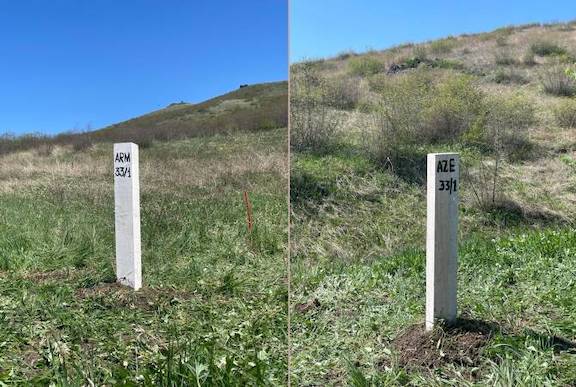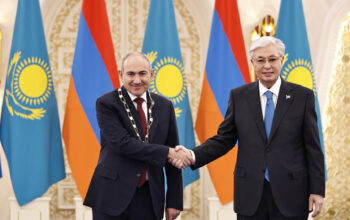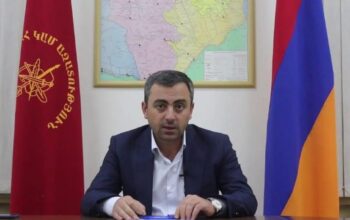On Tuesday, the Armenian government offered little clarity regarding its ongoing negotiations with Azerbaijan on border delimitation. The office of Deputy Prime Minister Mher Grigorian, who represents Yerevan in these talks, merely reaffirmed that discussions are continuing.
The statement added, “It is planned to complete these negotiations in the near future and then proceed to the demarcation of the remaining parts of the border, including enclaves and exclaves.”
Earlier in May, Armenia and Azerbaijan concluded a contentious border demarcation process involving several sections of the frontier between Armenia’s Tavush region and Azerbaijan’s Qazax district. This process, initiated by mutual agreement on April 19, resulted in Armenia relinquishing control of four villages that were part of Soviet Azerbaijan, along with certain areas of Armenian villages, as per maps from the 1970s used in the negotiations.
The move, criticized by the opposition as a unilateral concession, sparked local protests that escalated into clashes between riot police and demonstrators outside the Armenian parliament on June 12.
In a joint statement made before initiating the process, Armenia and Azerbaijan announced plans to adopt “regulations” by July 1 for the joint activities of their commissions tasked with delimiting and demarcating the nearly 1,000-kilometer-long border.
These regulations are intended to establish principles for delineating the heavily militarized frontier. Armenian officials have stated that these principles will form the basis for Azerbaijan’s recognition of Armenia’s territorial integrity.
However, neither side provided explanations for missing the July 1 deadline. In nearly identical statements issued on that day, they noted that negotiations were continuing “constructively” and expressed intentions to agree on the regulations “soon.”
The Armenian opposition interpreted the missed deadline as a failure of Yerevan’s diplomacy to secure a comprehensive border demarcation agreement despite making territorial concessions.
Opposition lawmaker Tigran Abrahamian highlighted the “unprecedented secrecy” surrounding the current stage of Armenian-Azerbaijani border negotiations. He pointed out that details often emerge through Azerbaijani officials or intermediaries rather than Armenian sources.
“Given these conditions, when examining the border demarcation process—especially its complex, problematic, and nuanced aspects—the Armenian authorities appear intent on limiting the disclosure of relevant information as much as possible,” Abrahamian said.
He accused the Armenian government of concealing Azerbaijani demands for the return of four villages for an extended period, suggesting that this was part of a strategy to create the impression that Yerevan was addressing issues related to agricultural lands and pastures from 31 Armenian villages currently controlled by Azerbaijan, framing the process as “reciprocal.”
“Time has shown—and I regret to say this—that Azerbaijan had set clear demands, and the Armenian government repackaged it with appealing rhetoric… in reality, they made unilateral concessions under the guise of a border demarcation process,” Abrahamian stated.
Opposition groups argue that the recent border demarcation has left Armenia potentially more vulnerable in the Tavush region in the event of renewed conflict with Azerbaijan, given the withdrawal of Armenian armed forces from strategically important areas.
Armenian Prime Minister Nikol Pashinyan has dismissed these criticisms, asserting that the alternative to border demarcation would have been another war, for which Azerbaijan would have had a legitimate pretext. He also maintained that local Armenian communities are now better protected legally than they were before the demarcation.
The Armenian government has expressed hope that the demarcation process with Azerbaijan will continue in other sections of the border, including those where Yerevan accuses Baku of occupying Armenian territories following a series of incursions in 2021-2022.




